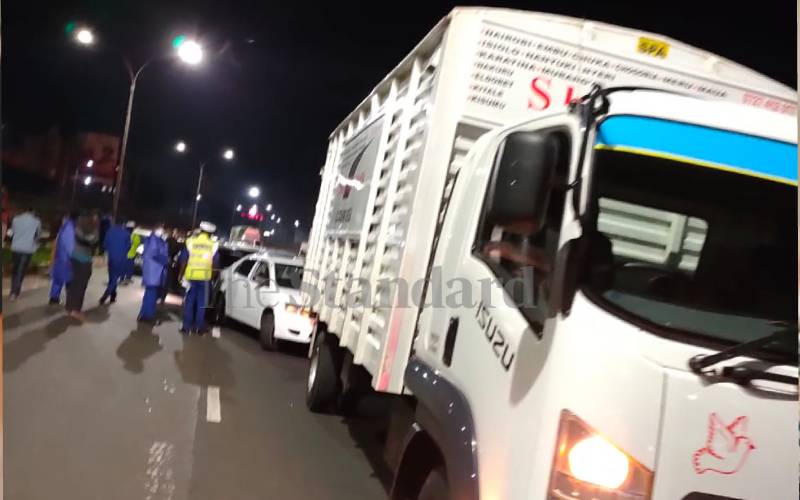×
The Standard e-Paper
Smart Minds Choose Us

Police check essential service providers' passes past curfew on Thika Road on April 18, 2021. [Emmanuel Too, Standard]
The traffic officer perched on his mammoth motorbike is usually stationed on Likoni Road facing oncoming cars. Too frustrated to follow along and turn back, most motorists will drive over the kerb to join Road C. Like a predator, the officer will sprint and catch you at the “mouth” of Road C.